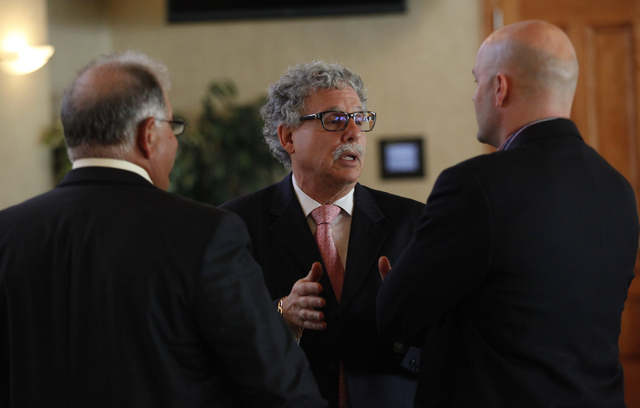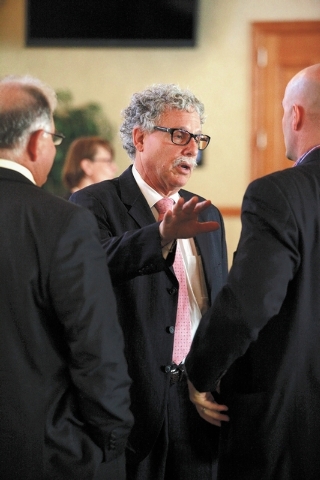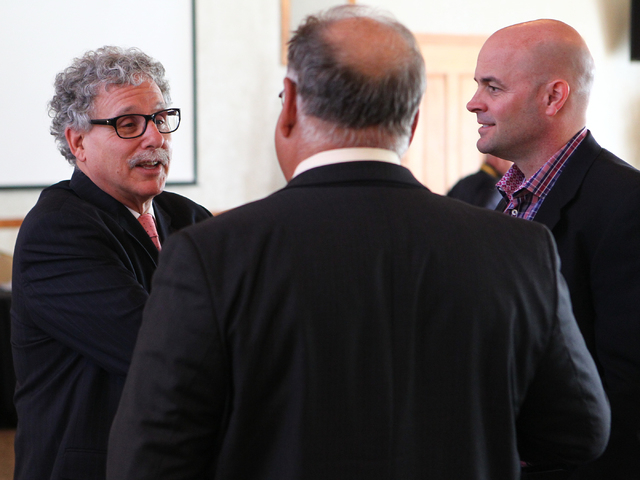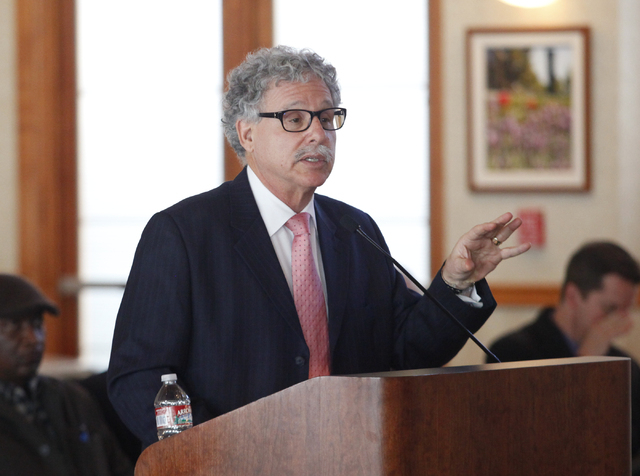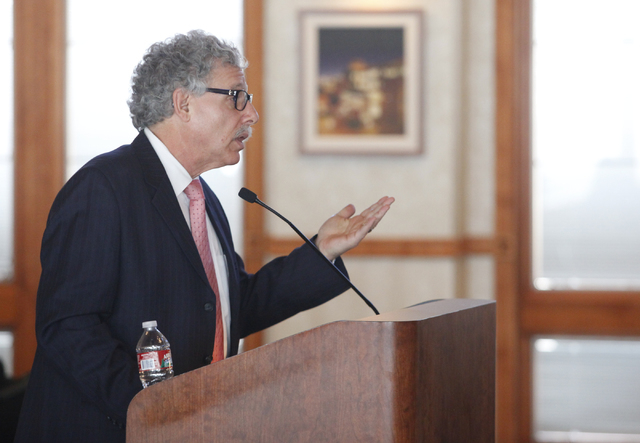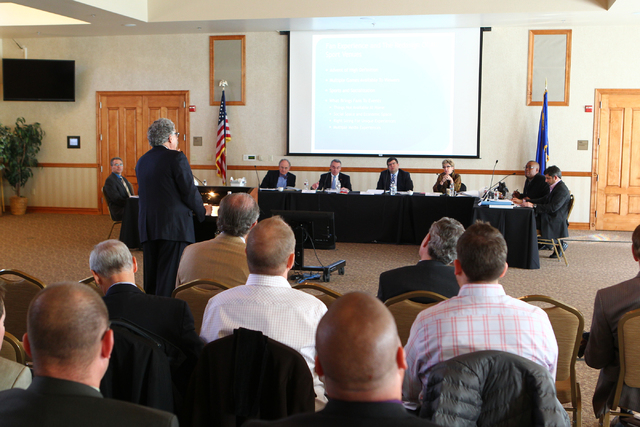UNLV stadium consultant says the value of the venue is key to a deal
Back in the 1990s, when sweetheart stadium deals allowed palatial venues to be built mostly with public dollars, stadium consultant Mark Rosentraub was among a cadre of college professors who called out teams and cities for fleecing the public.
In 1997 Rosentraub, a former Indiana University professor and ex-Cleveland State urban studies dean, published “Major League Losers,” a book in which he criticized stadium cheerleaders for exaggerating the economic impact of their projects.
But by the late 2000s, Rosentraub, 63 and now a University of Michigan endowed professor and a paid consultant for the University of Nevada, Las Vegas, had carved out another niche that, on the surface, looked like he had switched sides in the stadium debate. He started saying that if stadiums and arenas are built as part of a broader urban redevelopment plan, the publicly subsidized sports venues that make millions of dollars for team owners can also be economic winners for taxpayers.
He wrote a book about that, too. In “Major League Winners,” he cited Los Angeles, San Diego and Columbus, Ohio, as cities where a stadium/arena-centered development district paid dividends. A follow-up, “Major League Winners II,” is due out in 2014.
Rosentraub said the San Diego Padres’ new baseball park is one of the best examples of a publicly subsidized sports venue spurring growth and helping the public.
He said the Padres stadium in the Ballpark District triggered more than $2.1 billion worth of commercial and residential development, which generated property and sales taxes along with construction jobs.
“It created an economically integrated neighborhood. That’s the most important aspect,” Rosentraub said. “It created below-market-rate residential housing.”
Rosentraub’s “Major League Winners” book also said Indianapolis and Cleveland can boast of improved downtowns — and bolstered images — thanks to sports and cultural venues.
Here in Las Vegas, Rosentraub last year advised UNLV officials that a new on-campus stadium would be a very good deal and would generate $393 million per year in new money for the Las Vegas area.
Gerry Bomotti, UNLV vice president for finance and business, said the university, starting three years ago, has paid a combined $87,256 to the University of Michigan and directly to Rosentraub as an independent contractor for the consultant’s services. Rosentraub now charges $300 per hour for his UNLV work.
Rosentraub insists he’s still the same man who blistered stadium deals as rip-offs some 15 years ago.
To prove it, Rosentraub notes that a few years ago he told officials in Florida that Marlins Park, home of Major League Baseball’s Miami Marlins, was not a good deal for taxpayers. The ballpark saddled Miami-Dade County taxpayers with a $2.4 billion debt.
“I have never changed my opinions,” Rosentraub said.
In the case of UNLV’s proposed stadium, Rosentraub said an on-campus venue makes financial sense if Las Vegas’ hospitality industry buys into the project and works with the university in the way private developers became partners with the public in urban sports venue districts.
Rosentraub declined to say how much he thinks the resort industry should kick in for UNLV’s on-campus stadium.
“If the hospitality community says, ‘We’ll make an investment,’ and UNLV makes an investment with the land for a stadium in a land-locked campus, you have a partnership,” Rosentraub said. “That’s why I’m excited (about the stadium proposal). You have a major league winner.”
Rosentraub’s most recent UNLV work came Thursday, when he gave the 11-member UNLV stadium planning board an overview of planned and recently completed college stadium projects around the country.
The panel, made up of Regents, casino company representatives and public officials, is studying the need, scope, cost and funding of a proposed stadium at UNLV.
UNLV previously floated a $900 million, 60,000-seat domed stadium concept with private developer Majestic Realty.
But after cutting ties with Majestic, the university is now partnering with Las Vegas’ casino-hotel industry — through the stadium board — to determine whether a dome is needed and recommend the proposed stadium’s number of seats, size and price.
Rosentraub says the value of the venue is easy to see. He recently told the Review-Journal that a new stadium, combined with Las Vegas’ growing TV market, could help the Rebels football team land in a BCS conference, where lucrative TV broadcast contracts pay member universities $20 million to $25 million annually.
UNLV official Don Snyder, who chairs the university stadium board, said Rosentraub’s background of having a critical eye toward the early public-private stadium deals of the 1990s lends confidence that he won’t blindly advocate for a new stadium.
“I wanted to know from him why is this (UNLV stadium) different from other deals,” Snyder said, noting that Rosentraub made a credible case that all Southern Nevada would benefit through a partnership between the university and the Las Vegas hospitality industry.
The UNLV board is required to submit a report on its findings to the Legislature by Sept. 30.
Alan Snel can be contacted at asnel@reviewjournal.com or 702-387-5273. Follow Snel on Twitter at @BicycleManSnel.



